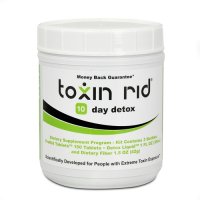Respectful Disability Language
download this page – doc: 96K pdf: 46K
Respectful Disability Language
What do we mean by “Respectful Disability Language”?
The use of outdated language and words to describe people with disabilities helps to continue old stereotypes. Being aware of the words we choose when we communicate is the first step toward correcting injustice. This is a guide to using appropriate words and language when talking to or about people with disabilities.
Why is it an issue for youth with disabilities and/or health care needs?
Language = Power
Imagine living your whole life always having to explain why the words that many people use frequently, are hurtful and offensive to you. Over and over you try to educate your teachers, co-workers, friends, even your family about how words and terms they use around and about you make you feel badly about yourself. Many of us are brought up in homes where we are the only one with a disability and have never learned to think of ourselves or other people with disabilities as proud individuals that just happen to have a disability. Instead, many of us grow up not realizing that internalized oppression [believing the bad things about people with disabilities as portrayed by society] among people with disabilities is an ongoing struggle. The medical, legal, and political parts of our society have defined how we describe ourselves and our disability, not the way that people with disabilities have chosen. These words often times do not describe us or personal preference. These portrayals led to unwanted sympathy, or worse, pity toward individuals with disabilities. Respect and acceptance is what people with disabilities would rather have.
By carefully choosing our words, we can make a tremendous difference in the lives of other youth with disabilities. Using respectful language can dramatically change our communities for the better.
Some Guidelines for Talking about Disability
- Do not refer to a person’s disability unless it is relevant. For example, don’t ask “What’s wrong with you?” or refer to the “girl in the wheelchair”.
- Use “disability” rather than “handicap” to refer to a person’s disability. When talking about or referring to parking spaces or bathroom stalls used by people with disabilities say “accessible” or “disabled” parking or “accessible” or “disabled” access stall.
- Never use “cripple/crippled” when talking about disability in general or the person.
- Don’t portray people with disabilities as overly courageous, brave, special, or superhuman. This makes it sound like it is unusual for people with disabilities to have talents, skills or to live life like everyone else.
- Don’t use “normal” to describe people who don’t have disabilities. It is better to say “people without disabilities” if necessary to make comparisons.
Outdated Language
Words you should NOT use when describing or talking about a person with a disability
- Crazy, insane
- Cripple, crip, gimp, lame
- Handicapped, physically challenged, special
- Retarded, slow
- Victim, stricken
- Wheelchair bound, confined
- Brain damaged
- Hyper sensitive
- Dwarf, midget, little person
- Invalid, deaf, dumb, deaf mute
- Deformed
- Poor, unfortunate
- Spastic, spaz
- Suffers from (an illness or disability)
Respectful Disability Language
Words you SHOULD use when describing or talking about a person with a disability
- Psychiatrically disabled
- Disabled
- Cognitively disabled
- People with disabilities
- Deaf or hard of hearing
- Blind or visually impaired
- Non-disabled
- Wheelchair user
- Someone of short stature
- Non visible disability
- Hidden disability
- Survivor
- Developmentally disabled
- Learning disabled
Remember to also take into consideration differences in culture as well as age. What is “OK” for some folks, is not “OK” for others. If you are unsure, please ask the person how she or he describes himself or herself.
When in doubt, call the person by his or her NAME.



